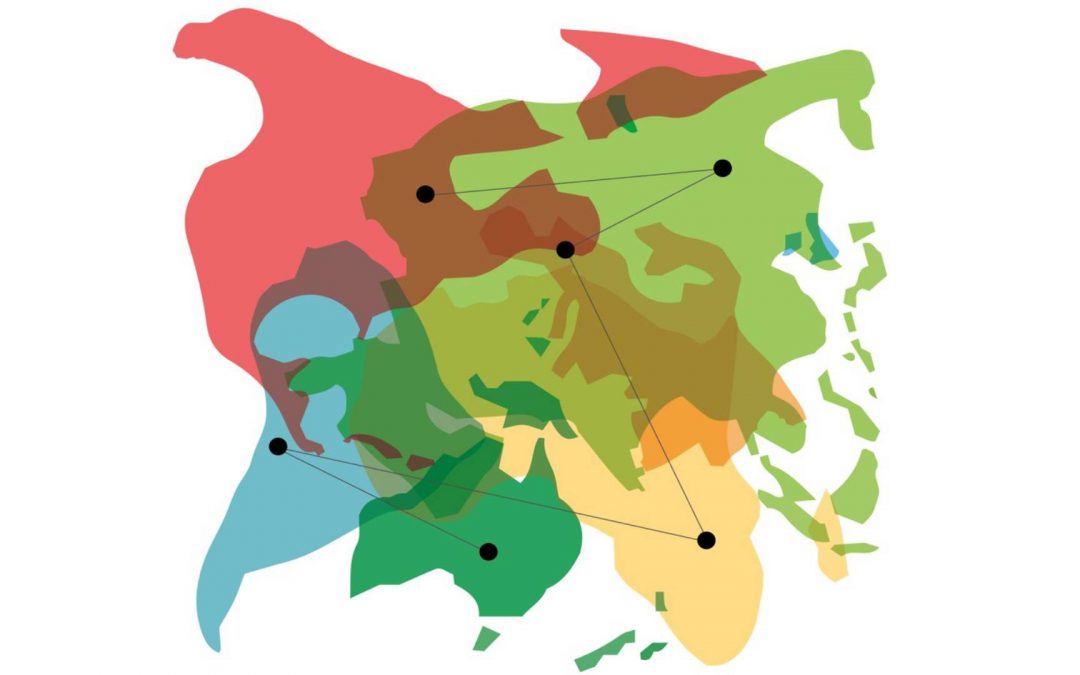This seminar is co-organised by Quentin Deluermoz et Didier Nativel and a result of the collaboration between the ICT (Identités, Cultures et Territoires), the CESSMA (Centre d’Etudes en Sciences Sociales sur le mondes africaines, américaines et asiatiques) and the GRIP.
It is situated at a double crossroads. Firstly, the place of ‘Europe’ in global history is understood as the study of long-distance interconnections and includes a series of approaches (connected and comparative, transnational, colonial, imperial, trans-imperial…). It is also a history of non-European worlds whose own historicities in a long time span have been appreciated with greater finesse for the last forty years.

The seminar will mobilize the second crossroads, the angle of sensibilities and the manufacture of the sensitivity to approach the societies in question. Sensibility, which here includes the study of emotions, sensory balance, ways of apprehending time and space, the construction and mutations of relationships with the direct and more distant environments of societies, has indeed often served as a test of differentiation between “us” and “them” – around questions such as those of the refinement of morals, the pacification of societies or bodily labels. Yet these processes are found, in different forms, sometimes simultaneously in many parts of the world. This perspective invites us to revise certain in-depth conceptions forged in the era of modernity (if only the opposition between reason and emotion). In the same way, it allows us to better highlight the plurality of ways of being in the world and thus denaturalize our own “immediate” perceptive impressions. We will be particularly attentive to the circulation of sensitivities and devices for the production of the sensible as a result of Western expansion and to the material and bodily effects of this expansion in Europe (effects of mobility, consumption/appropriation of exoticisms, etc.). The study of the sensible cannot be separated from the study of social stratifications and the incorporation (or contestation) of power relations: the seminar will therefore focus on anchoring, material and spatial environments, as well as on practices, interactions and phenomena of circulation at different scales. The aim is to bring to life a certain heritage of French historiography within global studies; but also, through this double decentring, to break out of certain contemporary conceptual impasses in order to attempt to reinterrogate several of the great mutations that profoundly marked the eighteenth and nineteenth centuries under the term “modernity”. The aim is to bring a certain heritage of French historiography to life within global studies; but also, through this double decentring, to break out of certain contemporary conceptual deadlocks in an attempt to reinterrogate several of the great mutations that profoundly marked the eighteenth and nineteenth centuries under the term “modernity”.
Registration
- Face to face, room 888 C, Hall C, 8th floor, Grands-Moulins, Université Paris Cité.
- On line, zoom link under demand : Didier Nativel or Quentin Deluermoz
Program
- 3th February : Session 1. Introduction, Quentin Deluermoz (U. Paris, ICT), Didier Nativel (U. Paris, Cessma)
- 17th february : Session 2. Circulation of images, Anaïs Albert (U. Paris, ICT), Daniel Foliard (U. Paris, LARCA)
- 17th March: Session 3. Racialisations, Aurélia Michel (U. Paris, CESSMA), Sakiko Nakao (Kyoto Seika University)
- 21th April : Session 4. Psyches, Hervé Mazurel (U. Bourgogne C. G. Chevrier), Marie-Caroline Saglio-Yatzimirsky (Inalco/CESSMA/Institut Convergences Migrations)
Timetable
Every session will start at 10 am until 12pm
À lire aussi

28th November 2024, presentation of the book: Pescando guindas en la siesta
Hebe Vessuri, a member of GRIP's Scientific Council, presents her latest book the 28th November 2024: Pescando guindas en al siesta, editorial SB. © Reserved rights Hebe Vessuri, presents her latest book the 28th November 2024:...

27th November, international symposium SEOSA
The international symposium Societal engagement of organizations and sustainability in Africa: catalysts for resilience in theface of multiple crises? SEOSA will take place the 27th November 2024 in Tunis. © Reserved rights The...

26th and 27th November -24 hours of the same world
24 hours of the same world: what has changed with globalization over the past 25 years? Tuesday November 26 to Wednesday November 27, 2024. The event will end up with a musical intervention and a cocktail ! © Dix-milliards-humains...

CAHIER GRIP : SEMANTIC MAPPING
GRIP has just published its second cahier of SEMANTIC MAPPING. This booklet is the result of work begun in 2021. We're proud to share it with you! © Reserved rights GRIP has just published its second cahier of SEMANTIC MAPPING. This...
